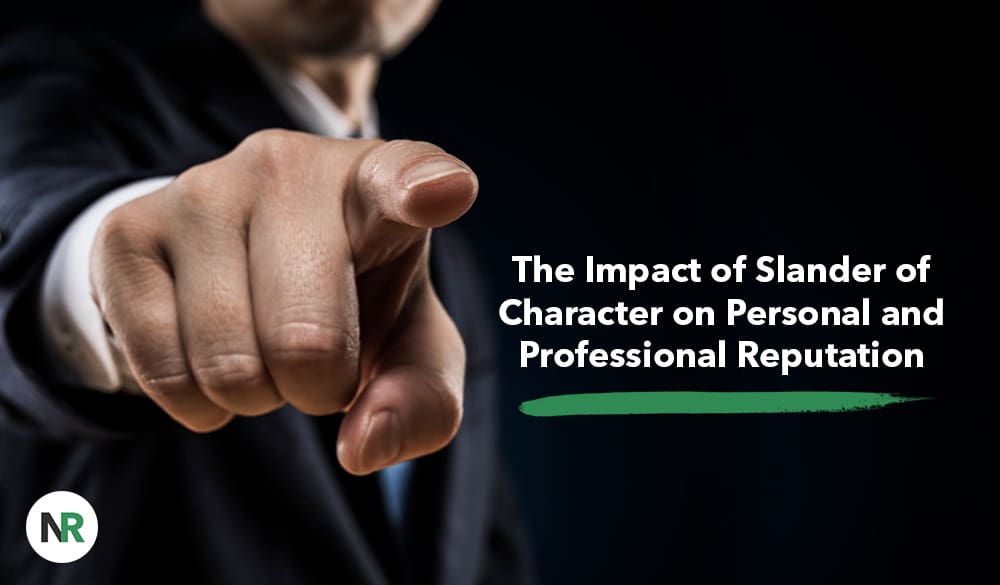Slander of character can profoundly affect personal and professional reputations, often resulting in lasting consequences.
What is Slander of Character?
Slander of character involves making false statements, either spoken or written, that damage an individual’s reputation. These statements can have serious repercussions for the affected person. Slander is defamation encompassing all damaging statements about an individual, whether spoken (slander) or written (libel). In jurisdictions like Chicago and Illinois, slander falls under defamation law to protect individuals from reputational harm caused by defamatory actions. False claims can severely impact personal relationships and lead to financial losses and reputational damage.
Therefore, understanding the scope and implications of slander and defamation is crucial for individuals and businesses.
How Does Slander Affect Personal Reputation?
Slander can profoundly impact an individual’s personal reputation and trigger a cascade of damage to relationships, trust, and mental well-being. Slanderous remarks may result in financial loss, diminished social standing, and a tarnished community image. Victims often struggle to restore their reputations and may need to explore legal remedies to address the harm inflicted.
In today’s environment, where false statements can quickly spread via social media and online platforms, understanding the personal consequences of slander is essential.
How Does Slander Affect Professional Reputation?
Slander can severely impact an individual’s professional reputation. It undermines their credibility and leads to long-term consequences such as financial instability and diminished career advancement opportunities. When slanderous remarks circulate in a workplace or industry, they tarnish a person’s image. This creates reputational risks that extend to the organization, affecting business integrity and customer trust.
The consequences in a professional setting can disrupt workplace dynamics, lower morale, and hinder productivity. Employees may become disengaged and distrustful as a result. Individuals facing slander may struggle to secure promotions or future employment. Organizations may incur costs related to employee turnover and recruitment.
Thus, management must address slanderous acts swiftly to foster a healthier workplace culture. Protecting and managing one’s reputation is essential for success in today’s competitive job market, as rebuilding trust after slander can be challenging and time-consuming.
What Are The Legal Consequences of Slander of Character?
The legal consequences of slander of character can be significant. They involve penalties such as compensatory and punitive damages awarded in court. Victims may seek recourse through defamation law, often requiring the assistance of defamation attorneys to navigate the complexities of their cases. Legal standards vary by jurisdiction, with each state, including Illinois, having specific defamation laws that define slanderous acts.
These laws emphasize key elements like actual malice and intent behind false statements. Possible penalties for slander may include compensatory damages for actual harm, punitive damages to punish malicious actions, court orders to cease further defamatory statements, and mandatory retractions or public apologies. These measures serve justice for the victim and deter future slanderous acts. They highlight the importance of maintaining integrity in public discourse and the role of judicial intervention in managing reputational risks.
How Can Someone Protect Themselves From Slander of Character?
Protecting oneself from character slander involves proactive reputation management strategies. These include seeking legal advice from firms like Davis Business Law and actively monitoring online defamation.
Establishing a strong online presence and being aware of community perceptions can help individuals respond quickly to false claims and safeguard their business reputation. If someone becomes a victim of slander, they should document evidence, gather witness statements, and consult defamation attorneys to explore legal recourse.
Maintaining detailed records of incidents, notifying the involved parties, and engaging a support network are also crucial steps. To prevent slander, individuals and organizations should prioritize open communication, actively participate in community events, educate their audience about their values, and monitor feedback to foster trust and credibility.
Implementing these measures can create a protective buffer against slanderous acts and maintain a positive public image.
What Are The Long-Term Effects of Slander of Character?
The long-term effects of slander of character can be significant. They result in lasting reputational damage, emotional distress, and financial losses for those affected. The repercussions can persist even after pursuing legal remedies, influencing personal relationships and professional opportunities. The role of the Illinois Supreme Court and the First Amendment in shaping defamation laws is crucial in this context.
For businesses, the consequences can include reduced public trust and integrity, jeopardizing financial stability and success in the marketplace. Thus, effective reputation management and a solid understanding of the legal landscape in areas like DuPage County and Chicago are essential for maintaining business viability.
